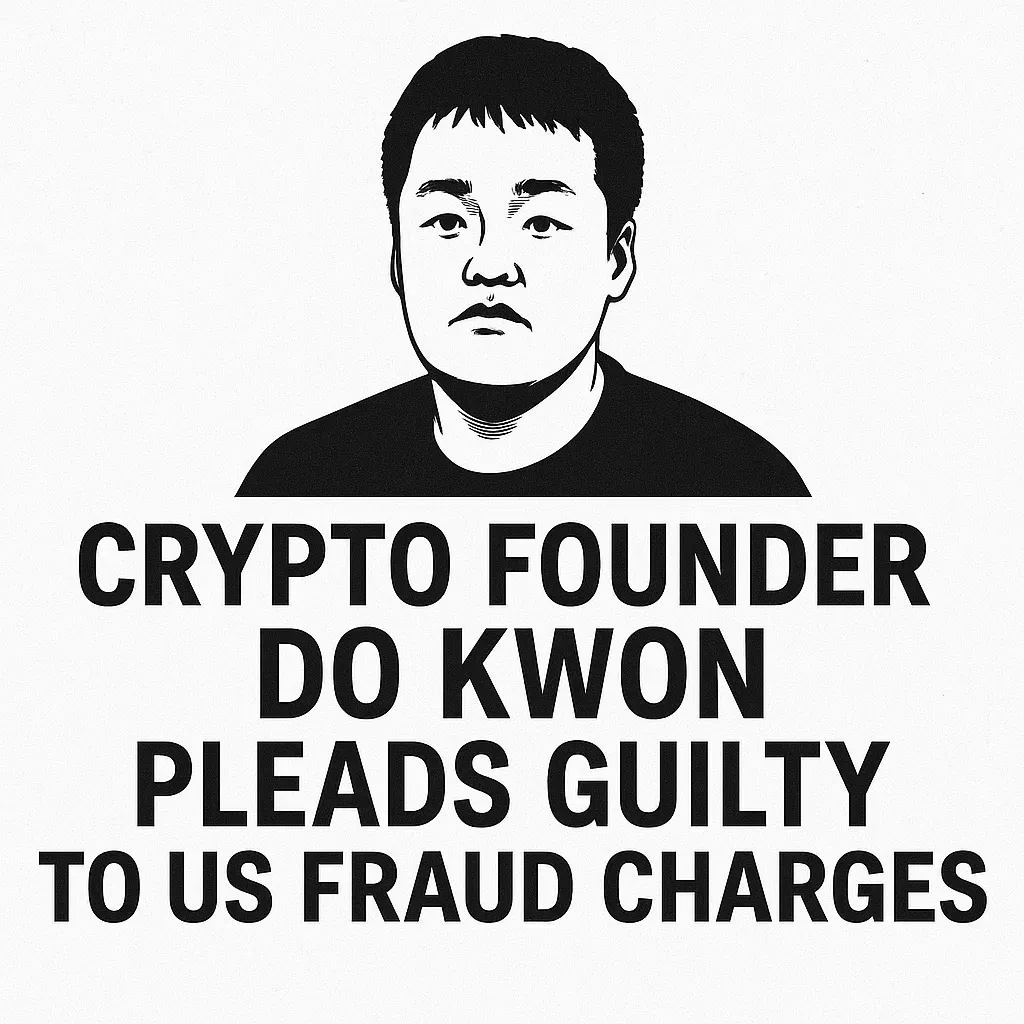
Crypto Founder Do Kwon Pleads Guilty to US Fraud Charges in 2025
In a landmark moment for the regulation of cryptocurrencies, Do Kwon, the South Korean founder of Terraform Labs, has pleaded guilty to multiple fraud charges in a United States federal court. This admission comes as part of a high-profile case revolving around the catastrophic collapse of Terraform Labs' flagship stablecoin TerraUSD (UST) and its sister cryptocurrency Luna, which collectively wiped out approximately $40 billion in investor wealth in 2022.
Terraform Labs is widely regarded as a pioneering force in the decentralised finance (DeFi) space, offering an algorithmic stablecoin designed to maintain price stability through a complex system of token burning and minting. Unlike traditional stablecoins backed by reserves of fiat currency or equivalent assets, UST was meant to maintain its peg by an automated market mechanism linked to Luna tokens. However, the failure of this mechanism caused UST to lose its peg to the US dollar, triggering a market crash that reverberated throughout the wider crypto ecosystem.
The US Department of Justice charged Kwon with conspiring to commit commodities fraud, securities fraud, and wire fraud over alleged attempts to deceive investors about the viability and stability of Terraform’s products. In court, Kwon accepted responsibility for the scheme, acknowledging actions that misled stakeholders and caused widespread financial harm.
As part of the plea deal, Kwon agreed to forfeit approximately $19 million, which represents funds derived from illicit activities connected to Terraform Labs. Facing a maximum sentence of 25 years in prison, his upcoming sentencing scheduled for later in 2025 represents a critical moment in the ongoing effort to enforce legal frameworks over the cryptocurrency sector.
The case is widely viewed as a major milestone in cryptocurrency regulation enforcement, illustrating that even high-profile and influential figures in the industry are not beyond the reach of justice. Until now, the crypto sector has been often characterised by regulatory ambiguity and a lack of adequate accountability. Kwon’s guilty plea signals an important turn towards stricter oversight and investor protection measures.
Industry analysts and regulators are now reflecting on the broader implications for the DeFi landscape and the rapidly evolving stablecoin market segment. Despite their promise to revolutionise finance, these products remain vulnerable to systemic failures and governance risks, underscoring the need for transparent protocols and robust safeguards.
Investor communities have also responded with mixed feelings. While the guilty plea provides some closure for those who lost billions in the UST implosion, it also underscores the persistent risks associated with speculative and unregulated crypto ventures. Experts advise due diligence and emphasise the importance of regulatory investment products to reduce exposure to fraud.
Furthermore, Kwon’s case may accelerate global efforts to formalise legal frameworks and regulatory standards for cryptocurrencies, especially those those around stablecoins. Amidst the rapid growth of digital asset markets, governments and financial authorities worldwide are increasingly focussing on preventing systemic risk and protecting consumers.
While this episode represents one of the darkest chapters in crypto's recent history, it could also act as a catalyst for positive reform. For crypto's long-term legitimacy and integration into mainstream finance, it is essential to strengthen compliance, enhance transparency, and build investor trust.
In conclusion, Do Kwon’s guilty plea to US fraud charges over the collapse of TerraUSD and Luna marks a turning point for the cryptocurrency industry. His case highlights the importance of accountability and regulation in an often volatile and speculative market, sending a clear message that fraudulent conduct will face serious consequences.
Stay on top of any cryptocurrency news by following us on X @ouinex